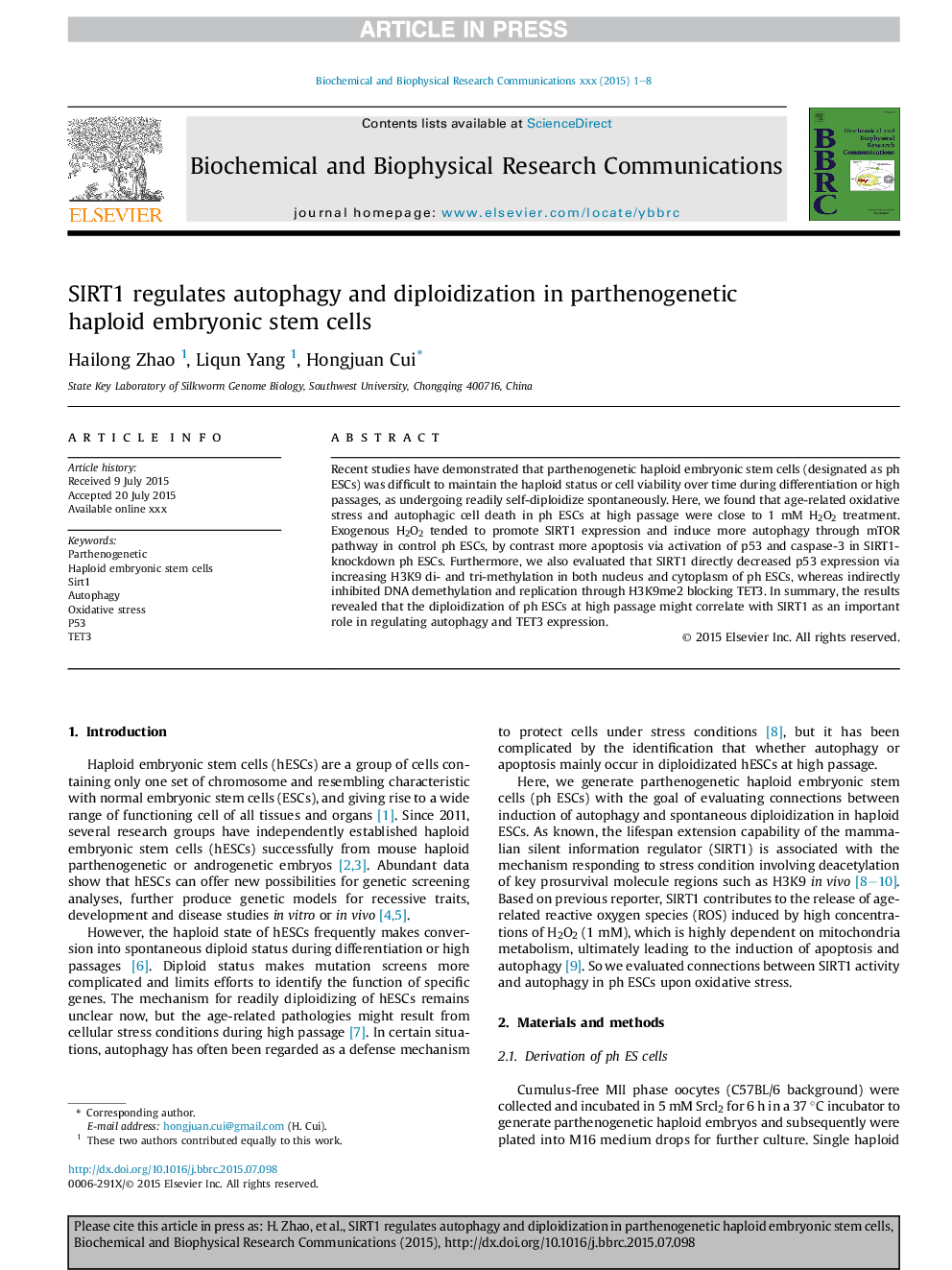| Article ID | Journal | Published Year | Pages | File Type |
|---|---|---|---|---|
| 10749897 | Biochemical and Biophysical Research Communications | 2015 | 8 Pages |
Abstract
Recent studies have demonstrated that parthenogenetic haploid embryonic stem cells (designated as ph ESCs) was difficult to maintain the haploid status or cell viability over time during differentiation or high passages, as undergoing readily self-diploidize spontaneously. Here, we found that age-related oxidative stress and autophagic cell death in ph ESCs at high passage were close to 1Â mM H2O2 treatment. Exogenous H2O2 tended to promote SIRT1 expression and induce more autophagy through mTOR pathway in control ph ESCs, by contrast more apoptosis via activation of p53 and caspase-3 in SIRT1-knockdown ph ESCs. Furthermore, we also evaluated that SIRT1 directly decreased p53 expression via increasing H3K9 di- and tri-methylation in both nucleus and cytoplasm of ph ESCs, whereas indirectly inhibited DNA demethylation and replication through H3K9me2 blocking TET3. In summary, the results revealed that the diploidization of ph ESCs at high passage might correlate with SIRT1 as an important role in regulating autophagy and TET3 expression.
Related Topics
Life Sciences
Biochemistry, Genetics and Molecular Biology
Biochemistry
Authors
Hailong Zhao, Liqun Yang, Hongjuan Cui,
